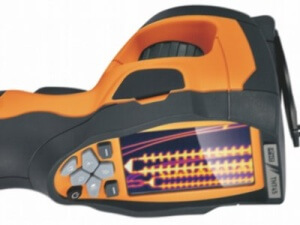 As for all electrical installations in the UK there are policies, protocols and regulations to be followed, Solar PV power supply systems are no exception to the rule. James Penlington-Kershaw of Acute Sales Limited, the sole UK distributor for HT Instruments, reminds us accordingly…
As for all electrical installations in the UK there are policies, protocols and regulations to be followed, Solar PV power supply systems are no exception to the rule. James Penlington-Kershaw of Acute Sales Limited, the sole UK distributor for HT Instruments, reminds us accordingly…
The Photovoltaic system standards and regulations are:
– Engineering Recommendation G83 (current edition) – Recommendations for the connection of small scale embedded generators (up to 16A per phase) in parallel with public low voltage distribution networks.
– Engineering Recommendation G59 (current edition) – Recommendations for the connection of generating plant to the distribution systems of licensed distribution network operators.
– BS 7671 (current edition) – Requirements for electrical installations (all parts – but in particular Part 7-712 Requirements for special installations or locations – Solar photovoltaic (PV) power supply systems).
– BS EN 62446 (current edition) – Grid connected photovoltaic systems – Minimum requirements for system documentation, commissioning tests and inspection.
So, whether your business is small scale solar installation (Domestic house) or large solar farms you’ll still have to follow the standards and regulations as well as joining a scheme to claim any incentives you may be entitled to.
Firstly you must be aware of the (MCS) Micro Generation Certification Scheme, an accreditation body for renewable energies. This outlines which guidelines must be followed to be a part of the scheme.
To be entitled to (FIT) Feed in Tariff, your renewable technology installer has to be part of MCS. This confirms your installer has followed the correct policies and procedures, ensuring the installation has been installed correctly and the installation is safe to be fed back to the national grid.
This scheme only applies to installations 50KW or below, for an installation above this, a second accreditation company is required. There is a required minimum amount of paperwork for this scheme. People who don’t use MCS accredited companies will not be allowed to claim any (FIT) and will not be connected to the grid.
The instruments needed to perform these series of tests include an irradiance meter, continuity testers, clamp meters and specially designed test leads.
HT Instruments are Europe’s leading solar test instrument specialists with products ranging from the simple solar tester ‘PV Check’ (as per BS EN 62446 states), to the more trouble shooting and maintenance tester looking at IV curves ‘IV400 +Solar IV’.
HT Instruments also cover 3 phase solar systems ‘Solar 300N’ with remote temperature and irradiance level reading instruments as standard ‘Solar02 and HT304N’. So no matter which solar panels you use, either the Polycrystalline, made from multicrystalline silicon (with efficiencies of 11% to 14%) or the Monocrystalline silicon panels which are slightly more expensive and slightly more efficient (around 15%), you can gain accurate readings from the panels.
HT has also introduced an accessory called the ‘MPP300’, for measuring and recording the efficiency of single phase and 3 phase multi-string systems. ’MPP300’ is used with the ‘Solar 300N or Solar IV’ either wirelessly using RF or via USB connection.

